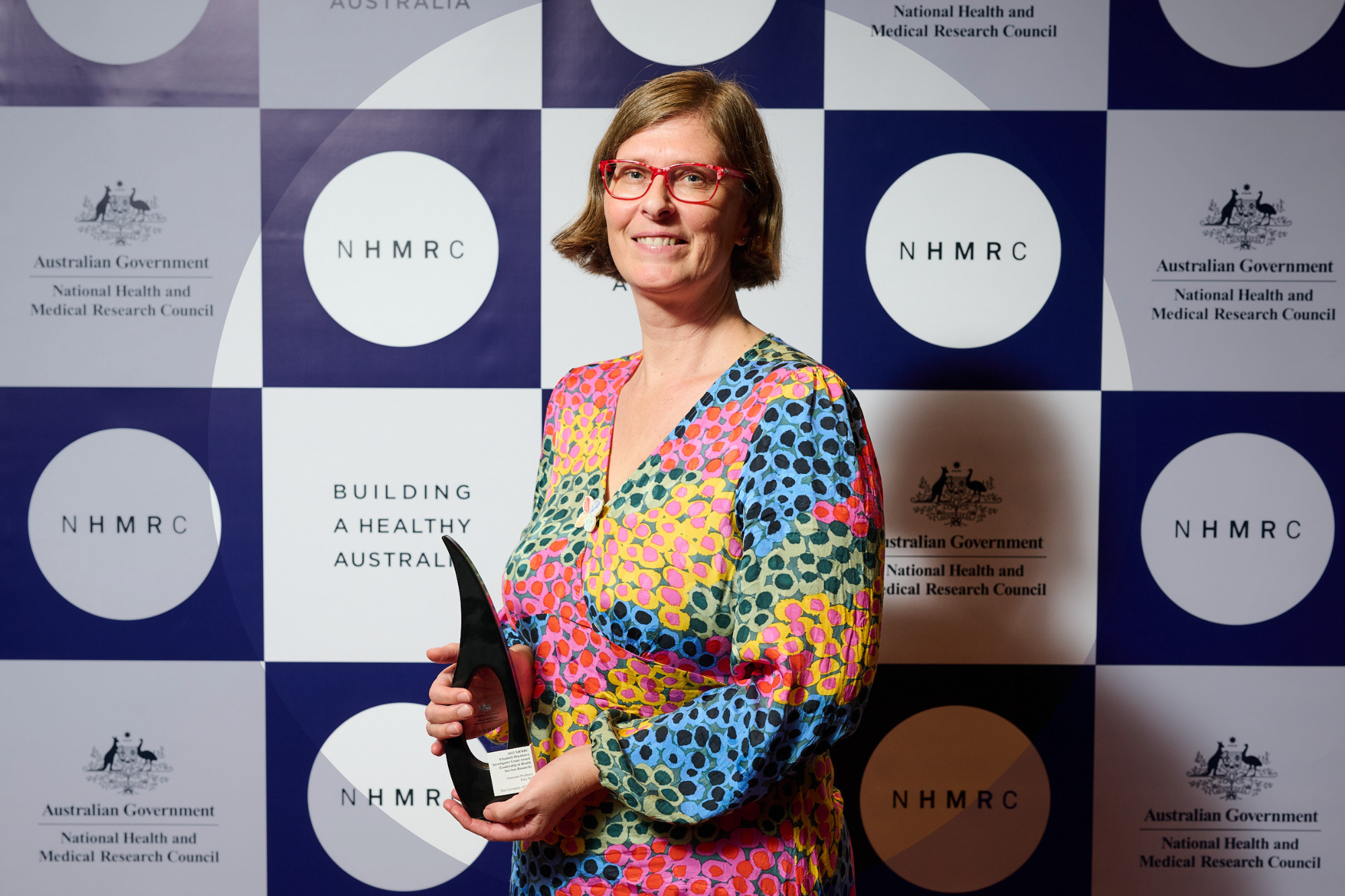Professor Katy Bell is a clinical epidemiologist and health services researcher at the Sydney School of Public Health. Professor Bell’s research evaluates the clinical effectiveness of healthcare, with a focus on medical tests used for screening, diagnosis and monitoring chronic disease. She is an NHMRC Fellow, and a member of the Medical Services Advisory Committee Evaluation Sub-Committee which critically assesses the evidence supporting applications for new listings on the Medical Benefits Scheme. The quality and impact of Professor Bell’s work has been recognised by awards including a Robinson Fellowship through the University of Sydney (2023) and an Australasian Epidemiological Association Mid-Career Researcher Professional Development Prize (2022).
After graduating in medicine, I worked for several years as a junior doctor in a hospital setting across several different specialties.
I enjoyed the clinical work and the contact with patients, but I was struck by how much of healthcare was just done out of habit, because ‘this is how it’s always done’, rather than being based on evidence.
Often this was because there simply wasn’t evidence available to inform choices that clinicians make every day – for example, do we need to request daily routine blood tests? I wondered how healthcare decisions could be made on a more rational basis.
I undertook a Master of Medicine in Clinical Epidemiology at the University of Sydney, and finally I found my vocation. Clinical Epidemiology applies epidemiology/statistical principles and methods to the clinical setting, with a focus on improving clinical decisions and patient outcomes. It underpins Evidence-Based Clinical Practice, including Evidence-Based Medicine. The Masters led to a PhD and subsequently my academic career in Clinical Epidemiology, with a focus on evaluating medical tests used for screening, diagnosis, and monitoring.
My research investigates ways to shift policy and practice from unnecessary, low value care, to necessary, high value care. In this way harms are decreased, and benefits increased.
I work across diverse conditions, with many of my research studies in cancer and cardiovascular disease, reflecting the high burden of these conditions in the population. My research is very applied, and is co-designed with clinicians, consumers, and policy makers. Working with these end-users means that the research that is done generates the evidence they want and need, with the aim of increasing the use of evidence in all health decisions – whether this is by the consumer, patient, clinician, health service organisation, or policy maker.
Receiving a Leadership Investigator Grant at this stage of my career is a significant achievement at a time when my work to date has led me to taking new directions in my research that hope to address contemporary threats to population health. It will allow me to expand my research team’s focus to investigate ways of supporting health systems to transition to low carbon healthcare.
The health impacts of climate change are now well recognised. What is less recognised is that healthcare itself is polluting. In fact, the carbon footprint of the Australian health sector is about half that of the entire construction sector. Healthcare also generates significant waste that must be disposed of, which is itself carbon intensive.
To avoid undermining its own mission, healthcare must urgently decarbonise. Key strategies for achieving this are to limit unnecessary and harmful care, and to use low carbon options for necessary care. Research on these strategies is a natural extension of my existing research program on high value care.
The Investigator Grant will support a series of studies aiming to deliver high value, low carbon, health care. Specifically, my studies aim to: (1) decrease low value care (where harms outweigh benefits for most), (2) define who may benefit from grey zone care and support informed decisions (where benefits outweigh harms for a subgroup of people), and (3) increase high value, low carbon, care (where benefits outweigh harms for most). Through my research program, healthcare may deliver substantial health dividends while reducing financial, opportunity, and carbon costs of unnecessary care.
I am incredibly grateful and honoured to be receiving this award in recognition of this valuable work. The award is a result of the contributions of my stellar team and collaborators, and the invaluable support and mentorship from the Wiser Healthcare collaboration and the Sydney School of Public Health. I hope this award highlights the invaluable contributions of clinical epidemiologists, and other health services researchers, working with purpose to improve policy and practice.
Increased investment in health services and carbon footprint research and personnel, will translate to more effective, efficient, and sustainable health systems – this will benefit patients, families, populations, and the planet.

